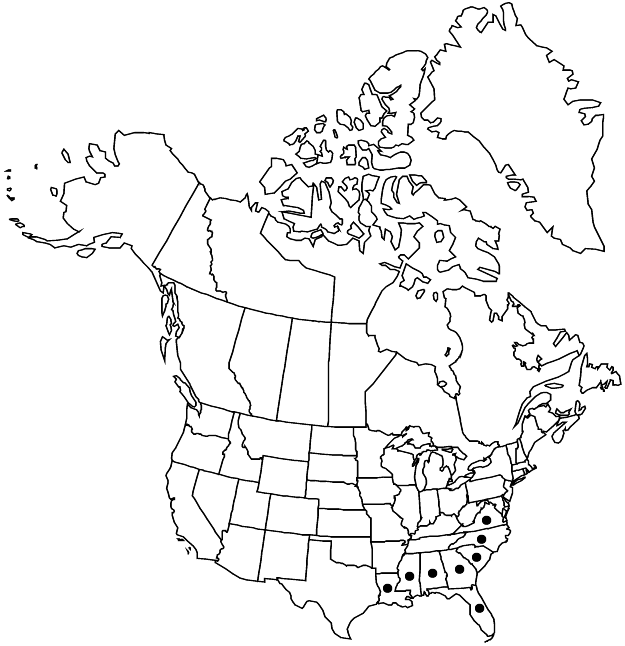Difference between revisions of "Stipulicida setacea var. setacea"
Synonyms: Stipulicida filiformis Nash Stipulicida setacea var. filiformis unknown
Treatment appears in FNA Volume 5. Treatment on page 28.
FNA>Volume Importer |
FNA>Volume Importer |
||
| Line 7: | Line 7: | ||
|name=Stipulicida filiformis | |name=Stipulicida filiformis | ||
|authority=Nash | |authority=Nash | ||
| − | }}{{Treatment/ID/Synonym | + | }} {{Treatment/ID/Synonym |
|name=Stipulicida setacea var. filiformis | |name=Stipulicida setacea var. filiformis | ||
|authority=unknown | |authority=unknown | ||
| Line 25: | Line 25: | ||
|elevation=0-200 m | |elevation=0-200 m | ||
|distribution=Ala.;Fla.;Ga.;La.;Miss.;N.C.;S.C.;Va. | |distribution=Ala.;Fla.;Ga.;La.;Miss.;N.C.;S.C.;Va. | ||
| − | |discussion=<p>We follow W. S. Judd (1983) in considering Stipulicida filiformis, described to account for plants with fewer flowers and thinner stems, as a morphological/ecological extreme of S. setacea; for an alternative view, see D. B. Ward (2001).</p> | + | |discussion=<p>We follow W. S. Judd (1983) in considering <i>Stipulicida</i> filiformis, described to account for plants with fewer flowers and thinner stems, as a morphological/ecological extreme of <i>S. setacea</i>; for an alternative view, see D. B. Ward (2001).</p> |
|tables= | |tables= | ||
|references= | |references= | ||
| Line 49: | Line 49: | ||
|publication year= | |publication year= | ||
|special status= | |special status= | ||
| − | |source xml=https://jpend@bitbucket.org/aafc-mbb/fna-data-curation.git/src/ | + | |source xml=https://jpend@bitbucket.org/aafc-mbb/fna-data-curation.git/src/8f726806613d60c220dc4493de13607dd3150896/coarse_grained_fna_xml/V5/V5_49.xml |
|subfamily=Caryophyllaceae subfam. Polycarpoideae | |subfamily=Caryophyllaceae subfam. Polycarpoideae | ||
|genus=Stipulicida | |genus=Stipulicida | ||
Revision as of 17:39, 18 September 2019
Sepals with margins ± entire, outer sepals with apex acute to obtuse.
Phenology: Flowering spring–fall.
Habitat: Dry, sandy soil of pinelands, scrub, fields
Elevation: 0-200 m
Distribution

Ala., Fla., Ga., La., Miss., N.C., S.C., Va.
Discussion
We follow W. S. Judd (1983) in considering Stipulicida filiformis, described to account for plants with fewer flowers and thinner stems, as a morphological/ecological extreme of S. setacea; for an alternative view, see D. B. Ward (2001).
Selected References
None.
Lower Taxa
None.